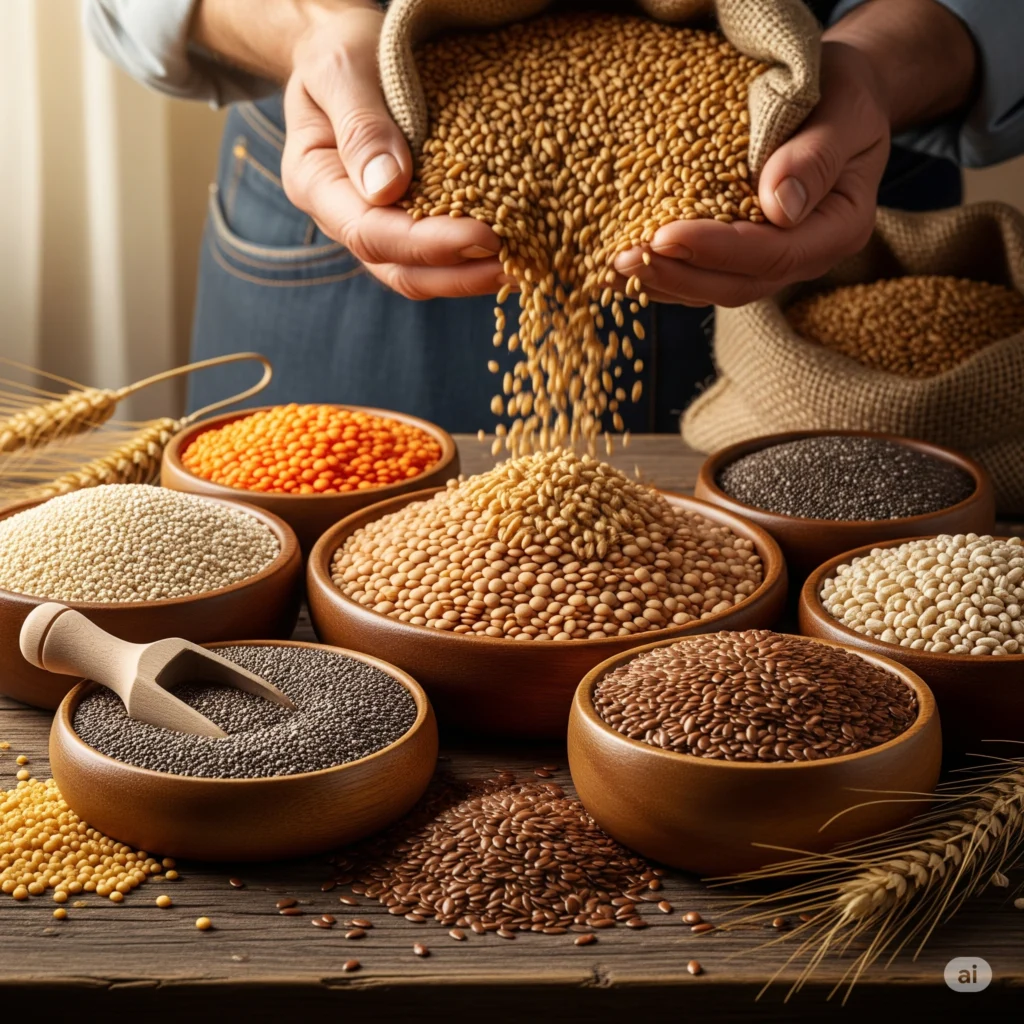The Journey of a Seed
Home / Pages /Latest News
The Science of Proper Storage Heading
The Enemies of Freshness: Defeating Light, Heat, and Moisture
Once you have your premium seeds and nuts, your pantry becomes the guardian of their quality. To protect your investment, you must defend it from four key enemies:
Light: Sunlight and even artificial light can degrade the healthy oils in nuts and seeds, causing them to go rancid quickly.
Heat: Warm temperatures accelerate spoilage. Storing products near a stove, oven, or sunny window is a common mistake that shortens their life.
Moisture: Humidity is a catalyst for mold and bacterial growth, which can spoil an entire batch of grains or seeds.
Air (Oxygen): Exposure to air leads to oxidation, the chemical process that causes rancidity and destroys vitamins and flavor.
Your Pantry's Best Practices: The Dos and Don'ts of Storing Seeds and Grains
DO: Store products in airtight containers. Glass jars with screw-on lids or vacuum-sealed bags are ideal.
DO: Keep them in a cool, dark, and dry place, like a pantry or cupboard away from heat sources.
DON'T: Store them in their original, unsealed plastic bags from the bulk bin, as these offer little protection.
DO: Consider the refrigerator or freezer for long-term storage, especially for nuts and seeds high in oil like walnuts, pecans, and flax seeds.
A Guide to Shelf Life: How Long Will Your Seeds and Grains Stay Fresh?
While shelf life varies, here is a general guideline for products stored properly in an airtight container:
Pantry (Cool & Dark):
Raw Nuts (e.g., Almonds, Cashews): 3-6 months
Seeds (e.g., Chia, Sunflower, Pumpkin): 6-12 months
Grains (e.g., Quinoa, Oats): 1-2 years+
Refrigerator:
Raw Nuts & Seeds: Can extend life up to 1 year or more.
Freezer:
Raw Nuts & Seeds: Can extend life up to 2 years or more.
